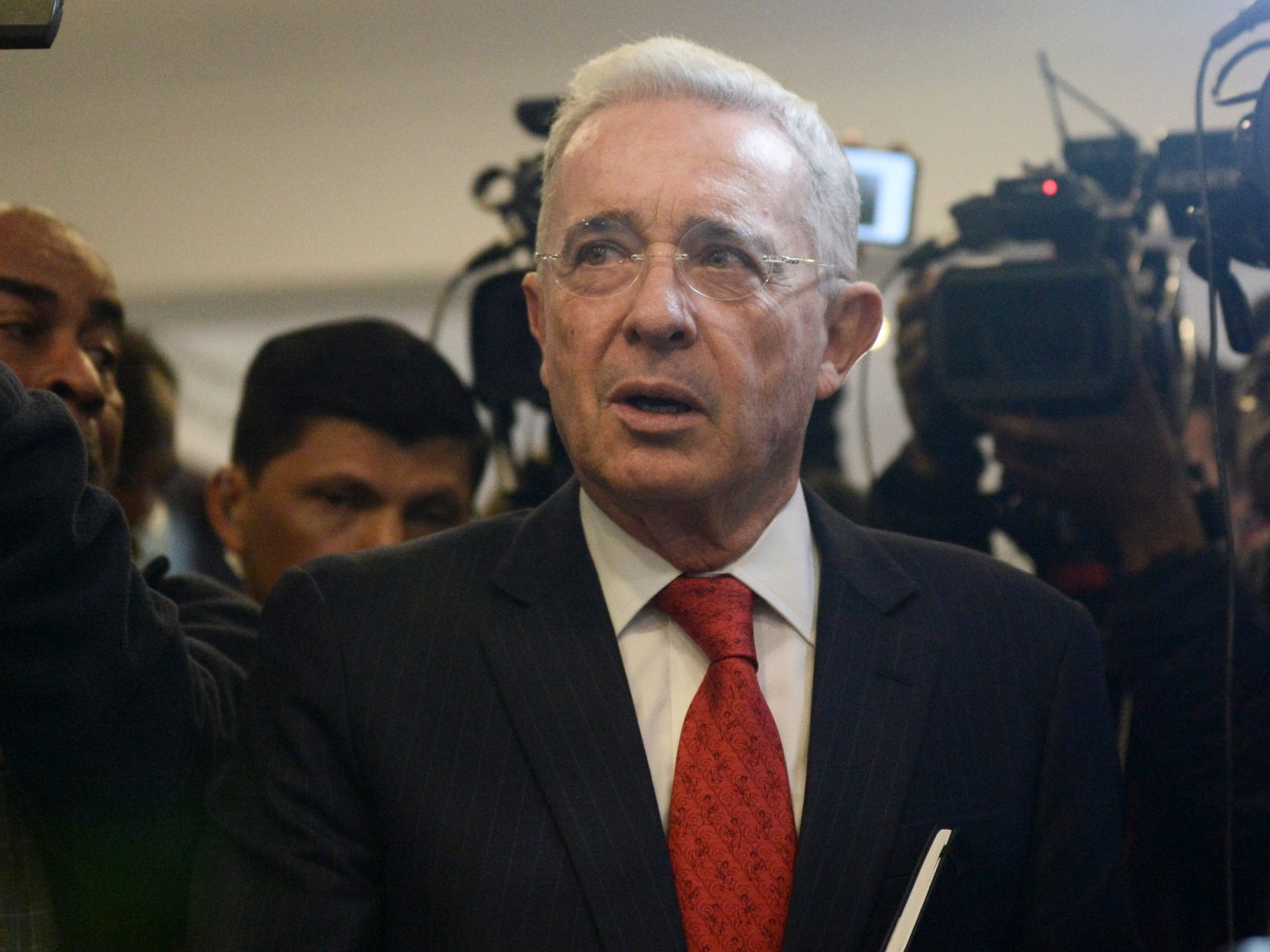Former Colombian President Alvaro Uribe has been charged with witness tampering and bribery, making him the first head of state in the country to face a criminal trial. The charges stem from an investigation into Uribe’s alleged connections to right-wing paramilitary groups. He is accused of offering money or other benefits to witnesses in order to discredit a political opponent who was looking into his family’s ties to these armed groups. If convicted, Uribe could face up to 12 years in prison. The 71-year-old former president has denied any wrongdoing and claims the charges are politically motivated.
There are wiretapped phone conversations where Uribe can be heard discussing efforts with one of his lawyers to influence two former paramilitary fighters who were set to testify against him. He insists that his conversations were illegally intercepted and that he was only seeking to defend his reputation. However, Judge Sandra Heredia has rejected his request to dismiss the case. Uribe expressed feeling hurt at being the first former president of Colombia to have to defend himself in court. The case originated in 2012 when Uribe, then a senator, accused left-wing senator Ivan Cepeda of falsely linking him to paramilitary groups. The investigation shifted focus onto Uribe instead.
The investigation against Uribe began in 2018 and has faced several obstacles, with different attorneys general trying to close the case. The case gained momentum under Attorney General Luz Camargo, appointed by Colombia’s first left-wing president, Gustavo Petro. Uribe, a prominent figure in Colombia’s right, is known for his strong stance against the left-wing Revolutionary Armed Forces of Colombia (FARC) and his opposition to the 2016 peace agreement that led to the disarmament of the Marxist rebels. Despite his denials and claims of innocence, Uribe’s trial for witness tampering and bribery has put him under the spotlight in Colombia.
The allegations against Uribe involve attempting to influence witnesses to protect his reputation and political standing. By allegedly offering cash or other benefits to these witnesses, Uribe is accused of obstructing justice and manipulating the legal system for his benefit. The wiretapped conversations provide evidence of his conversations with a lawyer on how to persuade former paramilitary fighters to change their testimony. Despite his insistence on his innocence and the unlawfulness of the intercepted conversations, the charges against Uribe have been taken seriously by the Colombian authorities.
Facing up to 12 years in prison if convicted, Uribe’s trial is a significant moment in Colombian political history. As the first former president to be criminally charged, Uribe’s case raises questions about the accountability of leaders and the rule of law in the country. The twists and turns of the investigation, from accusations against a political opponent to the focus shifting onto Uribe himself, reflect the complexities of corruption and influence in Colombian politics. With a new attorney general leading the case and political motivations at play, the outcome of Uribe’s trial will have far-reaching implications for the country’s justice system and its political landscape.
The virtual hearing where Uribe defended himself and the judge’s decision to proceed with the case despite his objections underscore the legal battle ahead for the former president. His claims of political vengeance and denial of any wrongdoing may face scrutiny in the courtroom as evidence is presented and witnesses testify. The trial’s significance in the context of Colombia’s history of armed conflict and political divisions adds to the gravity of the situation. The trial of Alvaro Uribe for witness tampering and bribery charges represents a pivotal moment in the country’s ongoing struggle for justice and accountability in its leadership.


